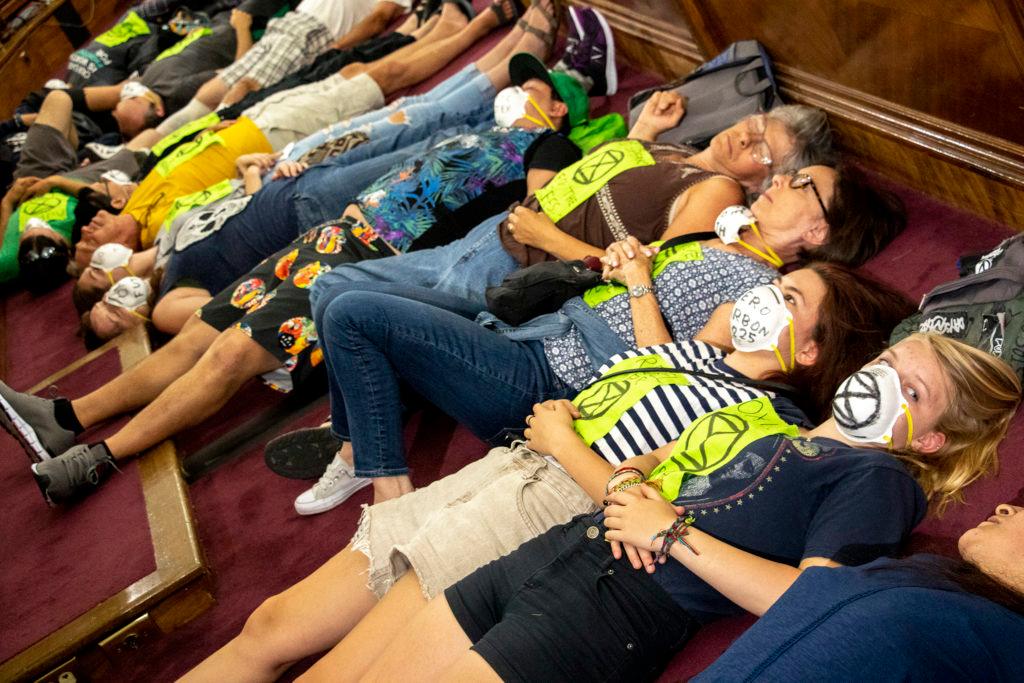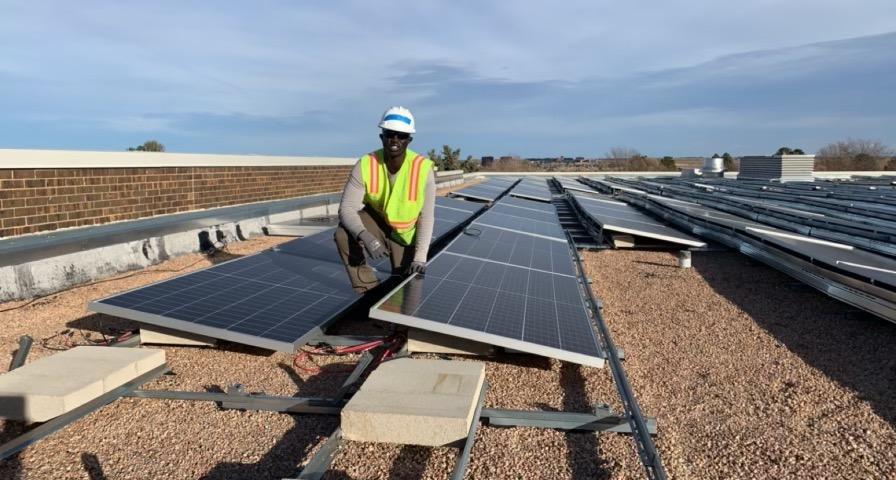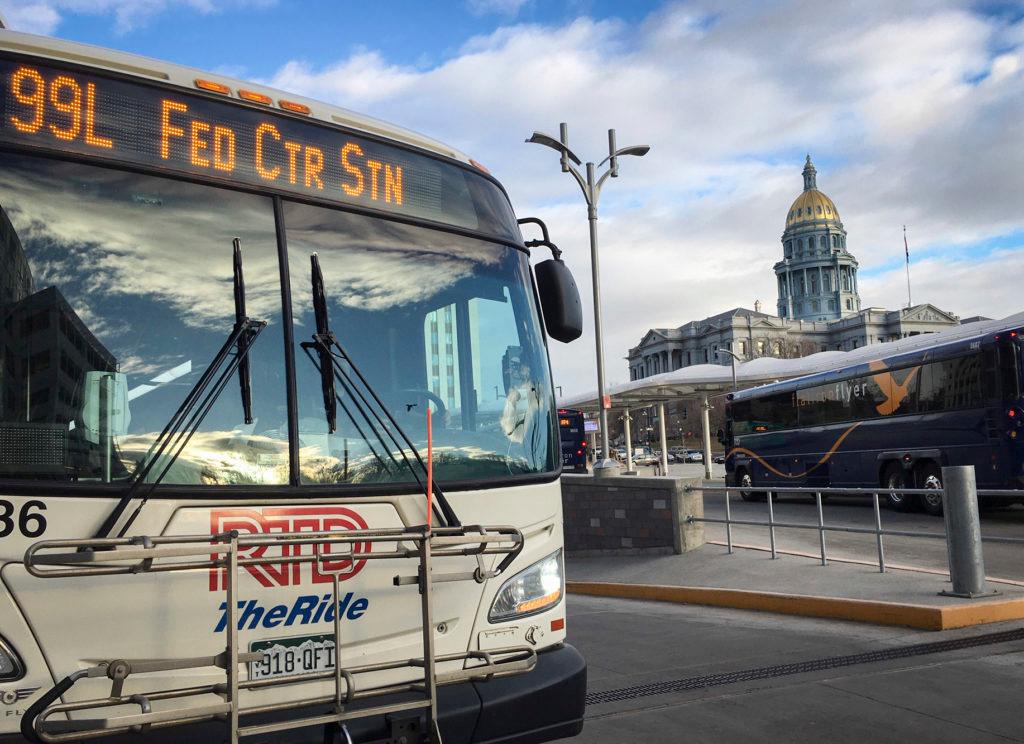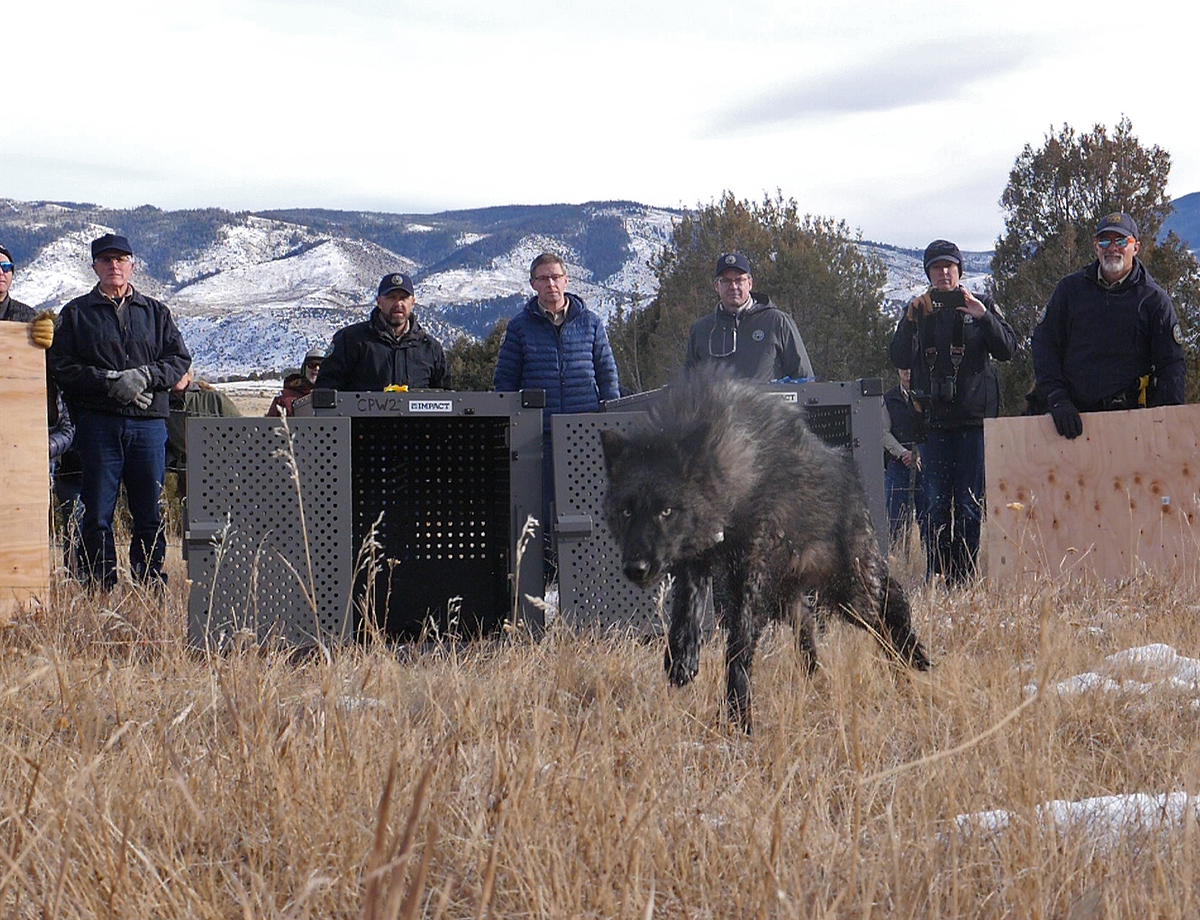
Over the last few weeks, Majok Ater has started his workdays by scaling a 30-foot ladder.
The climb gets the 29-year-old to the top of Hamilton Middle School in southeast Denver. The rooftop will soon support a massive new solar array. Grid Alternatives, a solar and energy efficiency nonprofit, offered an internship building the project through a grant from the City of Denver.
“I’m originally from South Sudan,” Ater said, before screwing together the base of a panel array. “I want to learn as much as I can from this industry and take my skills back home.”

Denver could soon see a lot more jobs like Ater’s.
On Nov. 3, Denver voters approved Measure 2A, which increases the city’s sales tax rate by .25 percent and should generate between $20 and $40 million a year to combat climate change and economic disparity in the Mile High City.
Cooper Martin, director of sustainability and solutions at the National League of Cities, said many cities aren’t waiting for the federal government to act on climate change. New York and Los Angeles enacted sweeping programs to reduce green emissions years ago. Miami is already rebuilding for an era of higher seas. Portland, Ore., taxes big-box retailers for a dedicated climate fund, which Martin said is likely the closest match to the plan recently approved in Denver.
Martin said Measure 2A is a unique approach. “I’m not aware of another city that has a sales tax mechanism,” he said.
A Fair Climate Tax?
The policy voters approved 62 to 38 wasn’t the first choice for activists backing the measure. Resilient Denver, the group behind Denver’s successful 2017 green roof initiative, initially hoped to pass a tax on energy use. Unlike a sales tax, people would have paid for every kilowatt-hour of electricity or therm of natural gas.
The group planned to run the ballot initiative in 2019 but narrowly missed the signature deadline. City councilor Jolon Clark, a climate-hawk in local Denver politics, then attempted to refer a similar measure to the ballot through the city council but faced opposition from Mayor Michael Hancock.
The council agreed to table the ballot measure if the mayor formed a new climate office and a citizen task force to draft a climate action plan. The mayor followed through. The task force then tried to figure out an alternative plan to fund Denver’s climate ambitions.
Clark, who joined the meetings, said the biggest barrier to an energy tax was Xcel Energy. He said lawyers for Colorado’s largest utility told the activists they’d fight the proposal at the ballot box and in court. The city council referred 2A to the ballot in August 2019.
“There was just a lot in there that led to it not being a preferred source of funding,” Clark said.
Many Denver climate activists reluctantly agreed to support a sales tax. While it appeared to offer the clearest path to victory, some criticized it as unfair to people with less money, who are more likely to notice an extra few cents on purchases.
The final ballot measure tried to account for the point. The initiative does not levy a tax on staples like food, water, medicine or feminine hygiene products. It also demands 50 percent of all the revenue raised go to Denver communities facing the worst consequences of climate change.
Sebastian Andrews, who advocated for the measure, said it’s not perfect, but it’s a big first step.
“It’s still a tax. It’s still going to affect these low-income populations but ultimately … it’s one of the best solutions we could come up with,” he said.

Spending The Money
The job of distributing the money now falls to Denver’s new Office of Climate Action, Sustainability and Resilience. Grace Rink, who directs the office, said the city now faces one of the toughest tasks posed by climate change. As communities adapt, they also make sure their work doesn’t entrench existing inequalities.
“This is going to be a conundrum for us,” Rink said.
Rink hopes to rely on residents to make recommendations for spending. The city will restructure its sustainability advisory council to involve about 120 people spread out across at least six subcommittees, each focused on a different aspect of Denver’s climate strategy. The mayor will appoint co-chairs of each subcommittee.
Energy use in buildings —homes, businesses, and industrial facilities — accounts for the biggest proportion of Denver’s greenhouse gas emissions. Transportation comprises almost all of the rest of the city’s contribution to climate change.
“That would mean that buildings and transportation should get the lion's share of the funding,” Rink said. “But we have this other clause that says 50 percent of the funding is directed towards these frontline communities that are dealing with the greatest burdens of climate change.”
Rink already has some ideas for projects that might meet both requirements of the ballot measure. For example, the city could form a program to switch lower-income homes to all electrical appliances. That could help reduce demand from natural gas stoves and water heaters, which can’t rely on renewable energy.
The city could also help install air conditioners, which currently don’t exist in half of Denver households. The machines could protect residents from excess heat and filter low-quality outdoor air. She imagines a medical partner, like Denver Health or National Jewish, could then verify whether the air inside improves.
“That's a great opportunity for a proof of concept,” Rink said. “Does it work? Does it have an impact on people's health?”
Climate Activists Aren’t Finished
Some activists aren’t convinced those plans go far enough.
Brandon Rietheimer, a climate activist and UPS driver, and Ean Tafoya, an organizer with GreenLatinos, left Resilient Denver ahead of the vote on 2A.
The pair now hope to put a new energy tax on Denver’s 2021 ballot. Unlike the original proposal, Rietheimer said this version includes changes to make it easier for the city and Xcel Energy to administer. Households and businesses would only be taxed above an energy-use threshold. Low-income residents would be exempted through existing safety net programs, like the federal Supplemental Nutrition Assistance Program or Colorado’s Colorado Low-income Energy Assistance Program.
According to Denver’s Climate Action Plan, the city needs $200 million a year to meet its emission-reduction goals. Rietheimer said an energy tax could bring the city closer — and encourage energy efficiency.
“Ultimately climate change is expensive. We need to raise dollars and we also should try to curb behavior while raising those dollars,” Reitheimer said.
Tafoya and Reitheimer expect the plan will stir a fight but said the success of 2A shows Denver residents are ready to act on climate change.








